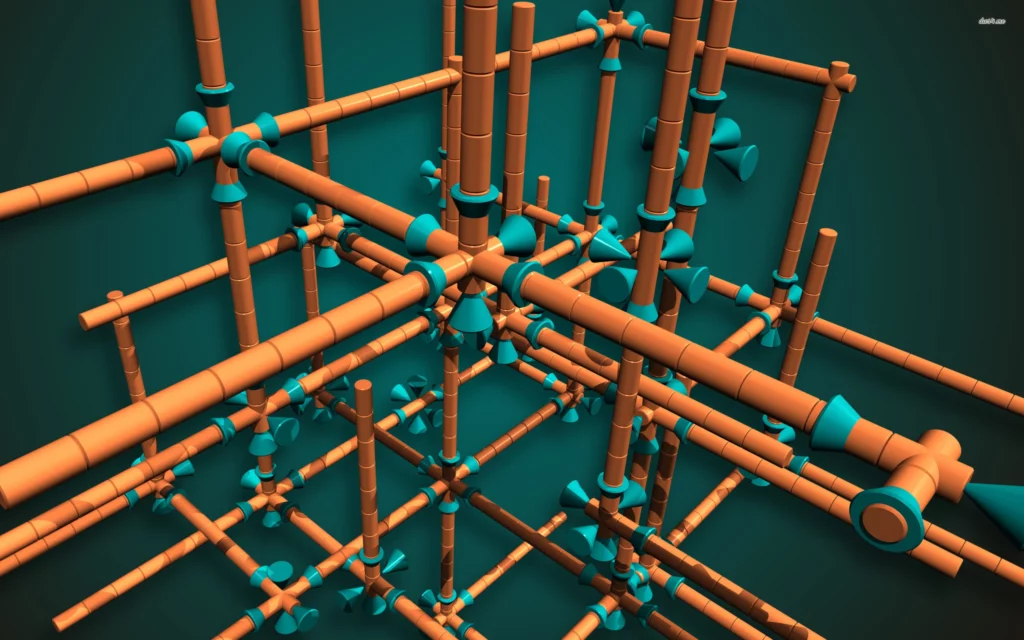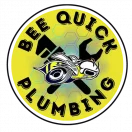Underground Plumbing Services in Naperville, IL & Surrounding Areas
We Specialize In Underground Plumbing Services To Repair, Maintain, And Upgrade The Hidden Pipes And Systems That Keep Your Home Running Smoothly.
Professional Underground Plumbing Services
Are hidden issues with your plumbing causing you trouble? The expert plumbers at Bee Quick Plumbing & Sewer Inc. can fix, maintain, and upgrade your home’s hidden pipes and systems. We specialize in comprehensive underground plumbing services in Naperville and throughout the Chicago metro, including emergency plumber support for urgent issues. If you are experiencing problems with your underground plumbing, our skilled crew in Naperville is prepared to help.
Our underground plumbing services range from detecting and repairing leaks to managing pipe corrosion and blockages, ensuring your plumbing system functions smoothly. With advanced diagnostic tools like sewer camera inspection and location, we can quickly identify issues without extensive digging, saving you time and minimizing disruption. Don’t let small problems become major disruptions—contact us today for a no-obligation FREE quote and secure the integrity of your plumbing system. Call us now at (630) 923-1942!
The Most Common Problems In An Underground Plumbing System
Underground plumbing issues, such as leaks, blockages, and pipe corrosion, can cause significant damage if not promptly addressed. At Bee Quick Plumbing & Sewer Inc., we utilize advanced diagnostic tools to quickly identify problems without extensive digging, offering comprehensive solutions from minor repairs to major replacements.
One major concern is the bursting of underground water pipes. Understanding the causes of pipe bursts can help prevent such incidents and ensure your plumbing system remains in top condition. Let’s explore the common factors that lead to underground pipe bursts and how to mitigate them effectively.
What Causes an Underground Water Pipe to Burst
Underground water pipes can burst, leading to significant damage and costly repairs. Understanding these causes can help in preventing such incidents and maintaining a reliable plumbing system. Here are some common reasons why underground water pipes burst:
Freezing Temperatures
In colder climates, freezing temperatures can cause water inside the pipes to freeze and expand. This expansion increases pressure within the pipe, often leading to cracks or bursts. Insulating pipes and maintaining a consistent indoor temperature can help prevent this issue.
Corrosion of Pipes
Over time, pipes made from materials such as iron or steel can corrode. Corrosion weakens the pipe walls, making them more susceptible to breaking. Using corrosion-resistant materials like PVC or copper for underground pipes can mitigate this risk.
Ground Movement
Shifting soil or ground movement due to natural events such as earthquakes, heavy rains, or even construction activities can put stress on underground pipes. This stress can cause the pipes to crack or burst. Properly installing pipes with some flexibility and ensuring they are laid at the correct depth can reduce the impact of ground movement.
Tree Root Intrusion
Tree roots naturally seek out moisture and can grow towards and into underground pipes, especially if there are any small leaks or cracks. Once roots penetrate the pipes, they can cause blockages and eventual bursting. Regular inspections and root barriers can help manage this problem.
High Water Pressure
Excessive water pressure can strain pipes and lead to bursts. Ensuring that the water pressure is regulated and maintained within safe limits is crucial for the longevity of the plumbing system. Installing pressure-reducing valves can help control water pressure levels.
Age and Wear of Pipes
Old pipes are more likely to burst due to wear and tear over time. Materials degrade, and joints or connections can weaken, increasing the likelihood of failure. Regular maintenance and timely replacement of aging pipes can prevent bursts.
Improper Pipe Installation
If pipes are not installed correctly, they may not be able to withstand environmental stresses or water pressure variations. Proper installation by experienced professionals and following best practices can ensure the durability of underground pipes.
Chemical Reactions With Pipe Materials
Certain soil conditions can cause chemical reactions with pipe materials, leading to deterioration and eventual failure. Using chemically resistant materials and protective coatings can help prevent such reactions.
How to Minimize The Risk of Underground Water Pipes Bursting
To minimize the risk of underground water pipes bursting, consider the following preventive measures:
- Insulate pipes in areas prone to freezing.
- Use corrosion-resistant materials for pipes.
- Install pipes at the correct depth and with some flexibility to accommodate ground movement.
- Conduct regular inspections and maintenance.
- Use root barriers to protect pipes from tree root intrusion.
- Install pressure-reducing valves to control water pressure.
- Ensure proper installation by qualified professionals.
By understanding and addressing these causes, homeowners can take proactive steps to protect their underground plumbing systems and avoid costly repairs.
Feel free to give Bee Quick Plumbing & Sewer Inc. a call at any time for expert underground plumbing services or to get more details about how to keep your plumbing system in good repair. Any and all of your plumbing needs can be met by our skilled crew.
Ensuring the Integrity of Your Plumbing System
Stay stress-free and worry-free by avoiding hidden plumbing issues. For reliable Naperville underground plumbing services, call Bee Quick Plumbing & Sewer Inc at (630) 923-1942. When you choose our professional plumbing services, we will promptly and accurately identify the source of your problem and implement a solution.
Make sure your home’s plumbing is in top shape by contacting us today for a FREE estimate to schedule your service or get more information. Don’t wait for a small issue to turn into costly repairs—reach out to us now and experience the peace of mind that comes with expert plumbing care. Call us today and take the first step towards a reliable plumbing system.

Underground Plumbing Service Testimonial
"For my subterranean plumbing repair, Bee Quick Plumbing provided me with a really positive experience. The specialists worked quickly and expertly, making sure that everything was cleaned up completely afterwards. I wouldn't think twice about using their services if I ever needed them again."
Underground Plumbing FAQs
Why is regular plumbing maintenance Important?
Good plumbing will help to ensure that there are air gaps, physical separations, and building codes that separate waste and clean water plumbing elements. Regular plumbing maintenance can help to keep your home’s water clean and safe at all times by preventing cross-contamination.
How do your plumbers fix a broken water pipe underground?
Fixing a broken underground water pipe involves locating the leak using acoustic listening devices or ground-penetrating radar, excavating around the affected area, repairing or replacing the damaged section, testing to ensure there are no further leaks, and restoring the surface.
How do your plumbers detect underground water leaks?
Our plumbers detect underground water leaks using acoustic listening devices to amplify the sound of escaping water, ground-penetrating radar to visualize leaks, and thermal imaging and pressure testing to identify temperature differences and pressure changes.
How long does it take to fix a broken water pipe underground?
The time to fix a broken underground water pipe varies. Simple repairs can take a few hours, while more complex repairs can take one to two days, depending on factors like weather and soil type
Can a drain be repaired without digging up?
Yes, drains can be repaired without extensive digging by using trenchless technology, such as pipe bursting or pipe relining, and spot repairs with cured-in-place pipe (CIPP) patches.
How do you know if your pipes are leaking under your floor?
You can detect leaks under your floor by looking for damp spots, noticing unexplained increases in water bills, hearing the sound of running water when no taps are open, and finding mold or mildew in normally dry areas.


 Powered by
Powered by